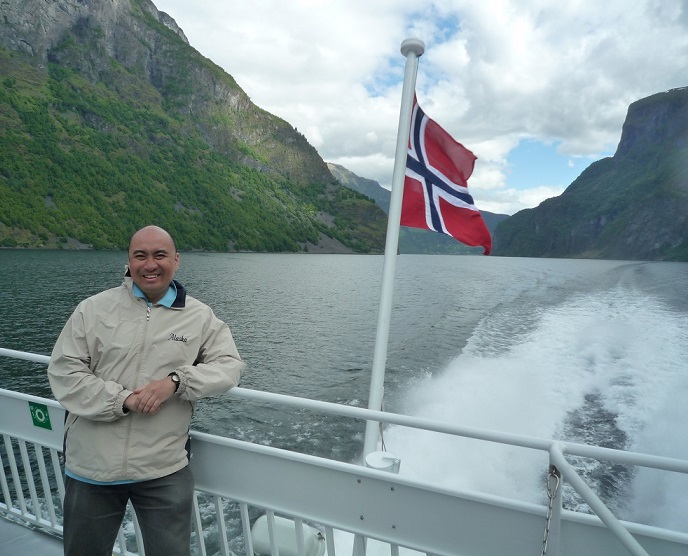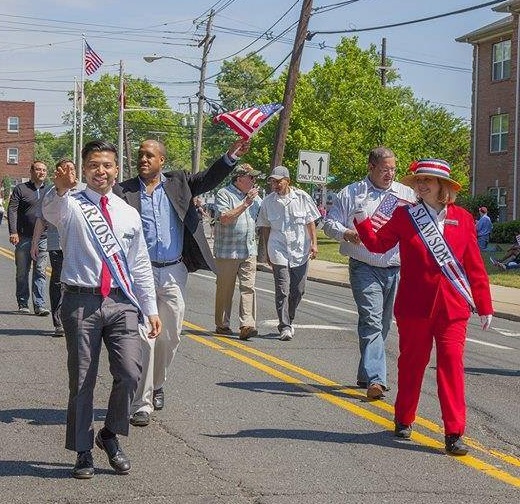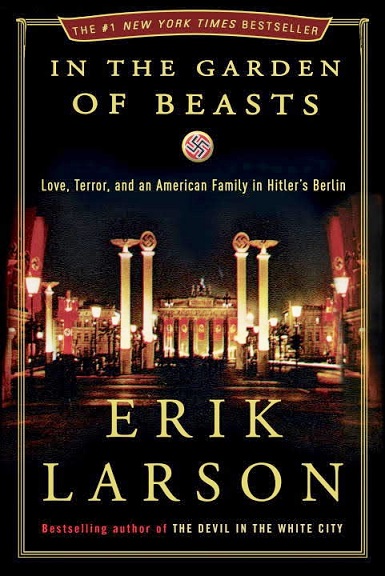An American family’s experience of life under the Nazi regime
I am eagerly anticipating my visit to Germany later this month where I will have the splendid opportunity to spend time with my Filipino-German relatives who reside in the country’s southern Bavarian region, where I can indulge myself its rich Western heritage which has had such a huge impact on Europe and the world.
While I do look forward to touring those charming castles and countryside for which it is renowned for, I am mindful of that country’s dark past. Of course we note that the formidable German economic power of today is nothing like it was during the 1930s and 1940s, when Hitler’s Nazi Germany proved to be one of the most evil totalitarian regimes in human history.
But it may be recalled that in the early years of Hitler’s rule, Nazi Germany was generally not viewed as a threat to world peace by the international community. In fact, many foreign tourists and businessmen who traveled there in the early to mid-1930s were impressed by the opulence and efficacy of this industrious nation which rapidly grew from a depression-stricken to a rich modern society that was the envy of Europe.
In spite of the nation’s emerging prominence on the global stage, quite a few foreigners living and working in the country who had paid astute attention to the political, social and cultural developments of German life under the Nazis, and who understood the sinister implications which these changes meant for world peace, had the courage to speak their minds in a time long before Hitler unleashed his nation’s war machine all over Europe in his mad conquest for territorial expansion and political dominance. One such person was William Dodd, a college professor who was appointed as the U.S. Ambassador to Nazi Germany, and whose very life is documented in author Erik Larson’s book “In the Garden of Beasts.”
An intensely engaging historical book, “In the Garden of Beasts” vividly describes in detail what everyday life was like in Nazi Germany, and what exactly did one see, hear, feel and smell in Berlin during those dark years.
It is written entirely from the perspective of William Dodd and his daughter Martha, who had various liaisons with a number of young officials serving the Nazi regime, such as Rudolf Diels, a former head of the feared Gestapo secret police. Her affair with a Russian embassy officer based in Berlin is also chronicled, and the book explores in greater depth what reads like a thrilling spy story — Martha Dodd’s alleged secret collaboration with her Russian suitor who was in actuality an intelligence operative for Soviet leader Joseph Stalin’s NKVD.
William Dodd was like any typical college professor nearing the twilight of his lifelong career, and he wished for nothing more than to retire in his idyllic farm in Virginia and publish his own series of books entitled “The Old South,” about the history of the American southern states like Georgia and Virginia in pre-Civil War times. However, fate had other ideas for Dodd, and he was soon handpicked by U.S. President Franklin Delano Roosevelt as his nation’s envoy to Germany in 1933, the very year Hitler ascended to power.
Upon arriving in Germany, everything which the Dodds experience from their arrival at the Hamburg ship ports, to the beautiful green parks of Berlin’s Tiergarten district, and to the majestic Reich government houses, makes a positive impression on them. They are amazed by the grandeur and efficiency of this “new Germany” created by the Nazis. Every social gathering and party they are invited to convinces them at first that the Nazis’ goal for their nation’s political and economic development is purely benign.
But as the months and years progress, the Dodds personally witness the rapid decay of Germany’s moral fabric. Civil liberties are slowly expunged, and many of their friends and associates who become ardent critics of the Nazi regime mysteriously vanish without explanation. Worse still, they see an increasing rise of brutal state-sponsored persecution against the country’s Jewish population.
Disillusioned that the Germany which he had known to be a world-class center for education and the arts in his younger years as a student was evolving into a barbaric state reminiscent of the Middle Ages, Ambassador Dodd sends several communications to the U.S. government warning of the dire consequences for Europe and ultimately America if no unified effort is done to rebuke the Nazi regime and its inhumane policies.
Being raised in a diplomatic family, I was drawn to read this book which focused on the trials and tribulations of William Dodd during his tenure as Ambassador to Germany. It excels in its narrative of Dodd’s efforts to broker closer relations between the United States and Germany, while at the same time upholding his principles of democracy and human decency, and even daring, however limitedly, to promote American values in Hitler’s tyrannical state.
What I found most disturbing was the author’s descriptions of what the Dodds encountered in everyday German life, such as intimidating marches and rallies of Nazi storm troopers and public humiliations of “Jewish sympathizers.” This book fundamentally serves as a warning from history that the potential for evil exists even in the most advanced societies.














